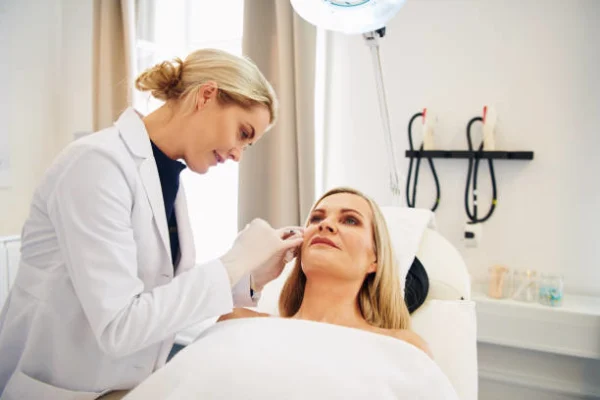In the modern world, preventive healthcare has become a cornerstone of maintaining overall well-being. Among the many options available, Life Line Screening has emerged as a popular choice for individuals seeking proactive measures to safeguard their health. Offering a range of non-invasive health screening services, Life Line Screening aims to detect potential health risks before they become critical. However, as with any healthcare service, it is crucial to understand the pros and cons to make an informed decision. This article delves into the advantages and disadvantages of Life Line Screening, helping you determine whether it is the right choice for you.
What is Life Line Screening?

Life Line Screening is a preventive healthcare company that provides affordable and accessible health screenings. Established in 1993, the organization focuses on early detection of diseases, offering tests for conditions like cardiovascular disease, osteoporosis, diabetes, and more. Screenings are conducted using minimally invasive methods such as ultrasound, blood tests, and electrocardiograms (EKGs).
The tests are typically conducted at community locations, such as churches or recreational centers, making it convenient for individuals to access the services. Life Line Screening aims to bridge the gap between routine check-ups and critical medical diagnoses, empowering individuals to take control of their health.
The Pros of Life Line Screening
1. Early Detection of Health Issues
One of the most significant advantages of Life Line Screening is its focus on early detection. Many chronic illnesses, such as heart disease or stroke, show minimal or no symptoms in their early stages. The tests offered by Life Line Screening can identify potential risk factors, enabling individuals to seek timely medical intervention and potentially prevent the progression of serious conditions.
2. Convenience and Accessibility
Life Line Screening operates in local communities, eliminating the need for hospital visits. Their services are usually conducted in familiar and accessible venues, making it easier for individuals, especially seniors, to attend. Appointments are typically quick and straightforward, reducing the hassle of long wait times often associated with traditional healthcare settings.
3. Comprehensive Screening Packages
The service offers a variety of screening packages tailored to different health concerns. For example, cardiovascular packages include tests like carotid artery screening, atrial fibrillation detection, and abdominal aortic aneurysm screening. This bundled approach allows individuals to assess multiple health parameters in a single visit, saving time and effort.
4. Affordable Pricing
Compared to individual diagnostic tests performed in hospitals or clinics, Life Line Screening is relatively cost-effective. The organization often offers discounts and packages, making preventive health screenings accessible to a broader audience. This affordability is particularly appealing to those without comprehensive health insurance.
5. Non-Invasive Methods
The tests conducted by Life Line Screening are non-invasive and painless. Procedures like ultrasound imaging and finger-stick blood tests are minimally disruptive, making the process comfortable for patients. For individuals wary of invasive diagnostic techniques, this is a significant advantage.
6. Increased Awareness and Health Education
Participating in a Life Line Screening can help individuals become more aware of their health status. Test results are often accompanied by detailed explanations, helping participants understand their risk factors and the importance of lifestyle changes to improve overall well-being.
The Cons of Life Line Screening
1. Not a Substitute for Medical Diagnosis
While Life Line Screening provides valuable insights into potential health risks, it is not a replacement for a comprehensive medical diagnosis. The tests are designed to identify risk factors, but they do not provide definitive diagnoses. Individuals with abnormal results must consult a healthcare professional for further evaluation.
2. Risk of False Positives or False Negatives
As with any screening method, there is a possibility of inaccurate results. A false positive may indicate a problem where none exists, leading to unnecessary anxiety and potentially costly follow-up tests. Conversely, a false negative may provide a false sense of security, delaying critical medical intervention.
3. Limited Scope of Tests
Life Line Screening primarily focuses on specific conditions and risk factors. While the services are extensive, they do not cover all potential health concerns. For example, screenings may not include tests for certain cancers, autoimmune disorders, or genetic conditions. Individuals seeking a more comprehensive health assessment may need additional tests elsewhere.
4. Lack of Personalized Care
Life Line Screening operates on a large scale, often catering to multiple individuals in a single session. This can result in a lack of personalized attention compared to visiting a primary care physician or specialist. Some participants may feel that the process is impersonal or rushed.
5. Out-of-Pocket Expenses
While affordable, Life Line Screening services are not always covered by insurance. For individuals on a tight budget, even the discounted packages may represent a financial burden. Moreover, follow-up tests or treatments recommended based on the results may incur additional costs.
6. Potential for Overdiagnosis
Screenings that identify conditions at an early stage can sometimes lead to overdiagnosis—the detection of health issues that may never progress to cause symptoms or harm. This can result in unnecessary medical treatments or procedures, which carry their own risks and expenses.
7. Quality and Accreditation Concerns
While Life Line Screening employs qualified professionals and state-of-the-art technology, the quality of services can vary depending on location and personnel. It is essential for individuals to verify the credentials of the technicians and the reliability of the equipment used during their screening.
Who Should Consider Life Line Screening?
Life Line Screening is particularly beneficial for individuals who:
- Have a family history of cardiovascular disease, diabetes, or other chronic conditions.
- Are over the age of 50 and want to monitor their health proactively.
- Seek convenient and affordable preventive healthcare options.
- Do not have immediate access to regular medical care or specialists.
However, it is equally important for participants to approach these screenings with realistic expectations. Consulting a primary care physician before and after the screening can help interpret the results accurately and determine the next steps.
Tips for Making the Most of Life Line Screening
- Research Before Booking: Review the specific tests included in the screening package and ensure they align with your health concerns or risk factors.
- Consult Your Doctor: Discuss the screening with your primary care physician to understand its relevance to your medical history and whether additional tests may be needed.
- Prepare for the Tests: Follow any pre-screening instructions provided, such as fasting requirements for blood tests.
- Understand the Results: Use the test results as a starting point for further discussions with your healthcare provider rather than relying solely on the screening service.
- Prioritize Lifestyle Changes: Regardless of the results, focus on maintaining a healthy lifestyle through proper nutrition, regular exercise, and stress management.
Conclusion
Life Line Screening offers a practical and accessible option for individuals looking to take control of their health. With its focus on early detection and affordability, the service has helped many people identify potential health risks and seek timely medical intervention. However, it is essential to weigh the pros and cons carefully. While Life Line Screening can be a valuable tool in preventive healthcare, it should complement, not replace, regular visits to a primary care physician or specialist.
By approaching the service with informed expectations and using the results as a foundation for better health practices, individuals can make the most of Life Line Screening and enjoy a proactive approach to their well-being.




Life Line Screening scammed me out of $197. by signing me up for a lifetime Membership that I knew nothing about. It was a year after my screening when my credit card got hit with a $197. I called them and was told that it was for my “lifetime membership”. That was the first I knew anything about this. At age 72 there is absolutely zero percent that I would buy a Lifetime membership in anything. I live on $1200./ month and can ill afford this. They are scammers.